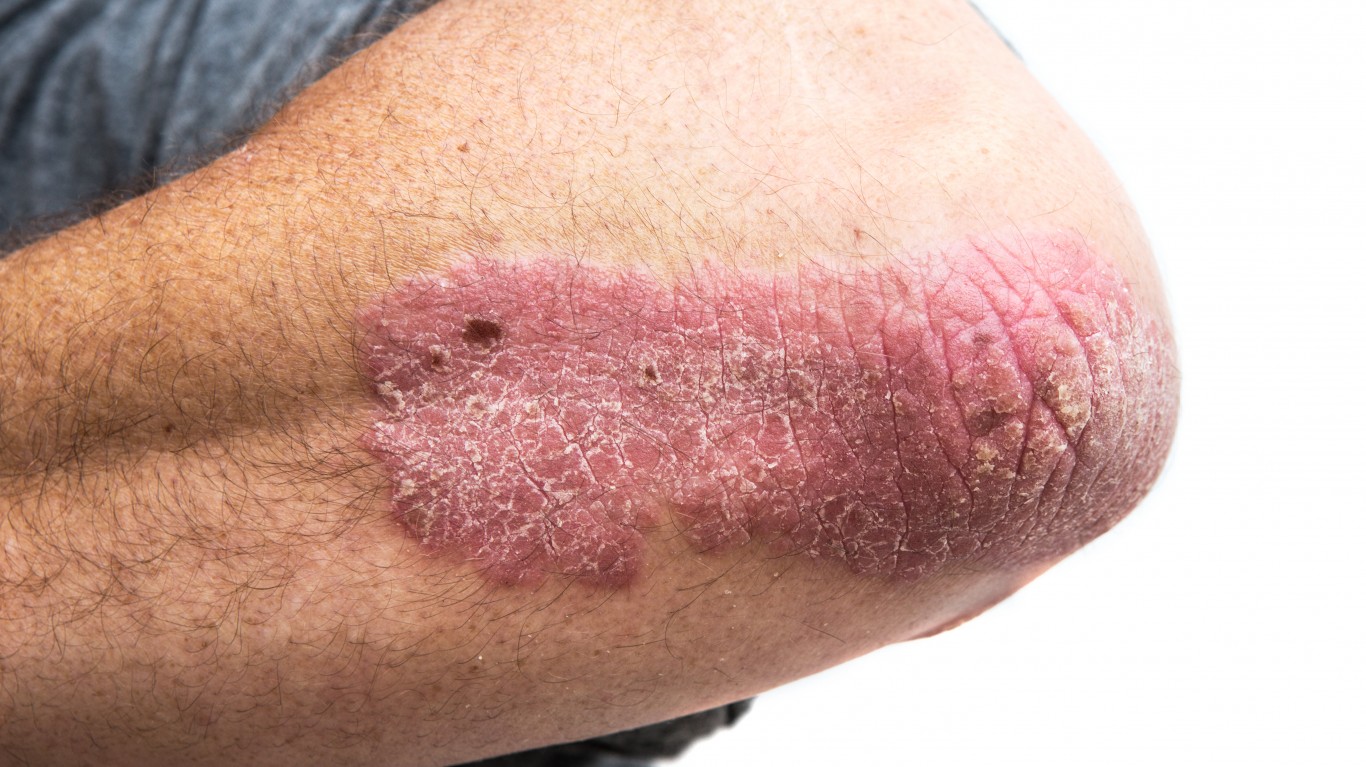Special Report
How to Know If Your Irritated Skin Is Actually This Serious Disease?

Published:
Last Updated:

Psoriasis is one of the most common skin diseases, afflicting about 2% to 3% of the population.
Multiple genes contribute to the development of the disease. Current estimates indicate that 10% of people inherit one or more of the genes that eventually could lead to psoriasis. Researchers believe that for a person to develop psoriasis, they must have a combination of the genes and be exposed to specific triggers.
Clinically, psoriasis is characterized by patches of red, itchy and scaly skin. Symptoms may vary in severity from small and localized to covering a large body surface area. Occasionally hands, feet, nails and joints (psoriatic arthritis) can be involved. Symptoms often worsen during winter and with certain medications, like beta-blockers or NSAIDs. Infections, especially streptococcus (strep), and psychological stress also may play a role in the development and worsening of the disease.
Even though certain infections cause psoriasis, it is not contagious.
There are five main types of psoriasis:
Most cases show up as red patches with fine white scales. The areas of the body most commonly affected by the disease are the back of the forearms, shins, around the navel and the scalp. Horizontal or discolored ridges on toe nails — a symptom many people barely even notice — can be an indication of psoriasis. Here is a list of 25 other health symptoms people always ignore but never should.
Anetta Reszko, M.D., Ph.D., a clinical assistant professor at Weill Cornell Medical College, says of this common but often misunderstood skin disease: “[T]here is no cure for psoriasis. However, various treatments can help control the symptoms. These treatments may include steroid creams, vitamin D3 cream, ultraviolet light, and immune system suppressing medications, like methotrexate, and newer generations of drugs known as biologics, like TNF alpha-blockers, and various monoclonal antibodies that modulate the inflammatory pathway leading to psoriasis. About 75 percent of cases can be managed with creams alone.”
Psoriasis also is associated with other conditions, with an increased risk of psoriatic arthritis, lymphomas, cardiovascular disease, Crohn’s disease and depression. Psoriatic arthritis (painful joint swelling, especially small joints) affects up to 30% of individuals with psoriasis. Psoriasis is not the only warning sign for other seemingly unrelated health conditions. Here is a list of dangerous health problems your hands and feet can reveal.
Credit card companies are pulling out all the stops, with the issuers are offering insane travel rewards and perks.
We’re talking huge sign-up bonuses, points on every purchase, and benefits like lounge access, travel credits, and free hotel nights. For travelers, these rewards can add up to thousands of dollars in flights, upgrades, and luxury experiences every year.
It’s like getting paid to travel — and it’s available to qualified borrowers who know where to look.
We’ve rounded up some of the best travel credit cards on the market. Click here to see the list. Don’t miss these offers — they won’t be this good forever.
Thank you for reading! Have some feedback for us?
Contact the 24/7 Wall St. editorial team.